Industry and trade
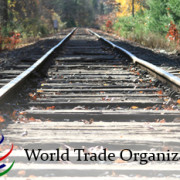 Governance and public sector management
Governance and public sector management
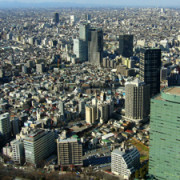 Industry and trade
Industry and trade
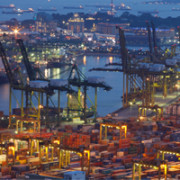 Regional cooperation and integration
Regional cooperation and integration
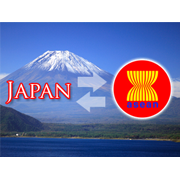 Industry and trade
Industry and trade
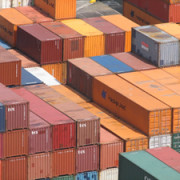 Education
Education
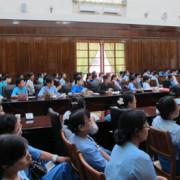 Social development and protection
Social development and protection
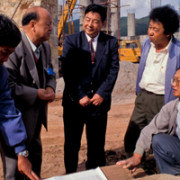 Regional cooperation and integration
Regional cooperation and integration
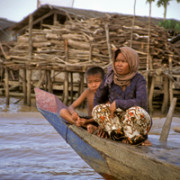 Social development and protection
Social development and protection
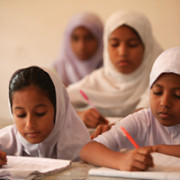 Finance sector development
Finance sector development

Back on track? The importance of the Bali Package for the WTO and global trade

After several days of grueling negotiations the Ninth WTO Ministerial Conference in Bali, Indonesia, in December 2013, adopted the Bali Package aimed at mainly streamlining global trade. However, this is only the first step toward a Doha deal and much work remains to re-formulate a post-Bali agenda, as well as reform of the WTO to restore its relevance as a key pillar of multilateral trade relations.
Abenomics: Progress, prospects and how the 2020 Tokyo Olympics can help solve Japan’s debt problem

Japanese Prime Minister Shinzo Abe’s economics platform, dubbed Abenomics, is a policy package consisting of three “arrows”: aggressive monetary easing with inflation targeting; flexible fiscal policy; and growth strategy. Together, the three arrows aim to lift Japan’s economy out of chronic deflation and stagnation, putting it on a path of sustainable growth. Thanks to the first and second arrows, Japan’s economy is firmly on the pathway to recovery and ready for the third arrow, barring political will. Tokyo’s recent successful bid to host the 2020 Olympic Games complements the Abenomics strategy by presenting a not-to-be-missed opportunity to solve Japan’s debt sustainability problem.
Where should the Trans-Pacific Partnership negotiations go next?

Officials have been scrambling to conclude the negotiations of the Trans-Pacific Partnership (TPP) among the current 12 participating members: Australia, Brunei Darussalam, Canada, Chile, Japan, Malaysia, Mexico, New Zealand, Peru, Singapore, the US, and Viet Nam. As the talks reach the finish line, officials need to focus on several key broader issues that will set up the institutional structure for the TPP going forward.
New challenges for ASEAN–Japan relations: Celebrating the 40th year of ASEAN–Japan friendship and cooperation

The Association of Southeast Asian Nations (ASEAN) and the Government of Japan are celebrating their 40th year of friendship and cooperation in 2013. A Commemorative Summit will be held in Tokyo starting on 13 December, at which leaders are expected to adopt a medium- to long-term vision to chart the future direction of ASEAN–Japan relations.ASEAN and Japan’s cooperative partnership began in 1973 with the establishment of the ASEAN–Japan forum on synthetic rubber production issues. From this initial success, ASEAN and Japan have forged close cooperation through the years in the pursuit of peace, stability, development, and prosperity in Asia. Japan’s Prime Minister, Shinzo Abe, has visited all 10 ASEAN member states this year, starting soon after his assumption of office in late December 2012.
A vision of global free trade? The new regionalism and the ‘building blocs’ debate

While the WTO Ministerial meeting in Bali in December may deliver on individual initiatives related to such themes as agriculture, trade facilitation and development, a major breakthrough on the “single undertaking” is far from sight. At the same time, mega-regional agreements are fast emerging as a key feature of the global architecture. This “new regionalism” could pose risks, but successful mega-accords will create a strong incentive for a global accord; hence, the “new regionalism” will arguably be a powerful “building bloc” that will ultimately support multilateralism.
Developing Myanmar’s knowledge economy: Improving higher education through international cooperation

Developing Myanmar’s knowledge economy is key to the country’s economic development. Higher education institutions will play a central role in training Myanmar’s workforce. Yet, a number of the academic programs lag behind international or ASEAN standards as universities have been virtually cut off from the outside world for decades.
BRICS countries emerging as major aid donors

Are the BRICS countries (Brazil, Russia, India, People’s Republic of China, South Africa) new aid donors? No, they are long-standing providers of foreign assistance, with the People’s Republic of China (PRC) commencing its foreign assistance programs in 1950, Russia in 1955, Brazil in 1960, and South Africa in 1968. However, the BRICS’ foreign assistance programs have grown in recent years, some dramatically. Though the BRICS countries are grouped together, the PRC is by far the largest and most significant player. In January 2011, the Financial Times reported that in 2009–2010, PRC lending to the poorest states exceeded that lent by the World Bank.
The PRC in the Greater Mekong Subregion: Economic and political implications

Driving out of the Wattay International Airport in Vientiane, Lao People’s Democratic Republic (PDR), one sees a large billboard featuring the overseas campus of Suzhou University in the People’s Republic of China’s (PRC). In a coffee shop in Vientiane, the first author met two PRC businessmen who talked about the prospect of a new venture to extract copper in northern Lao PDR. Just across the border from the PRC in Boten, Lao PDR, the second author talked with a local Lao driver in Chinese about the trucks full of fruit from Thailand parked minutes away from the PRC border checkpoint near the PRC-built casino ghost town that once ruled the area.1 And on the outskirts of Yunnan’s capital city of Kunming, the PRC’s fourth largest airport behind Beijing, Shanghai, and Guangzhou, Changshui International Airport, was opened in mid-2012. While seemingly disparate, these anecdotes reveal the ambition of the PRC’s “Go Southwest” strategy to politically and economically connect Southeast Asia to the PRC.
How to accelerate the implementation of the Millennium Development Goals

On 5 April 2013, the world’s largest and most successful anti-poverty campaign reached the 1,000-day mark toward achieving the Millennium Development Goals (MDGs) by 2015. The MDGs were established in 2000, when leaders gathered at the United Nations to pledge to cut global poverty and hunger by half, fight disease, reduce child mortality rates, and expand education and economic opportunities for girls and women. This was not the first time world leaders had made lofty promises to reduce poverty, and cynics expected the MDGs to be abandoned as too ambitious. Instead, MDGs have helped set national and global priorities, mobilize action, and achieve remarkable results in poverty reduction.
Banking crises and ‘Japanization’: Origins and implications

Recent research has found that economic recoveries from banking crises tend to be weaker and more prolonged than those from traditional types of deep recessions (see for example IMF 2009). Japan’s “two lost decades” perhaps represent an extreme example of this, and the experience has now passed into the lexicon as “Japanese-style stagnation” or “Japanization” for short. A long period of economic stagnation during peace time is not new, particularly among developing countries; the “lost decade” of Latin America in the 1980s is just one example. But Japanization was a surprising phenomenon observed in a mature market economy where the authorities were supposed to have sufficient policy tools to tackle banking crises and manage the economy.


Search
Subscribe / Connect to Asia Pathways
Subjects
- Agriculture and natural resources
- Blog
- Capacity development
- Climate change
- Economics
- Education
- Energy
- Environment
- Finance sector development
- Gender
- Governance and public sector management
- Health
- Industry and trade
- Information and Communications Technology
- Infrastructure
- Miscellaneous
- Population
- Poverty
- Private sector development
- Regional cooperation and integration
- Sanitation
- Social development and protection
- Transport
- Uncategorized
- Urban development
- Video Blog
- Water
Recent Posts
- Artificial intelligence: A new driver for inclusive growth and development?
- Increasing trust in cross-border e-commerce and artificial intelligence
- Enhancing access to maternal and newborn healthcare in developing Asia
- Can electric vehicles lead the way to a sustainable future?
- Mitigating climate-related sovereign risk to accelerate action on the climate emergency




Recent Comments